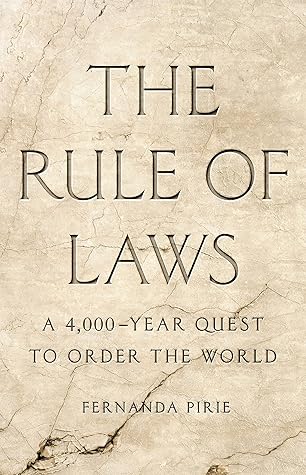Throughout the world, colonial projects to record and apply local laws were supported by local elites who embraced the new projects of government. The existence of law had by now become an important marker of development, so no one wanted to deny that their ancestors had had their own laws, even if they were not written down. This meant that they effectively had to create a new type of law, which they called ‘customary’, or ‘traditional’, out of the fluid norms and practices that had characterized traditional systems of government.
Welcome back. Just a moment while we sign you in to your Goodreads account.


